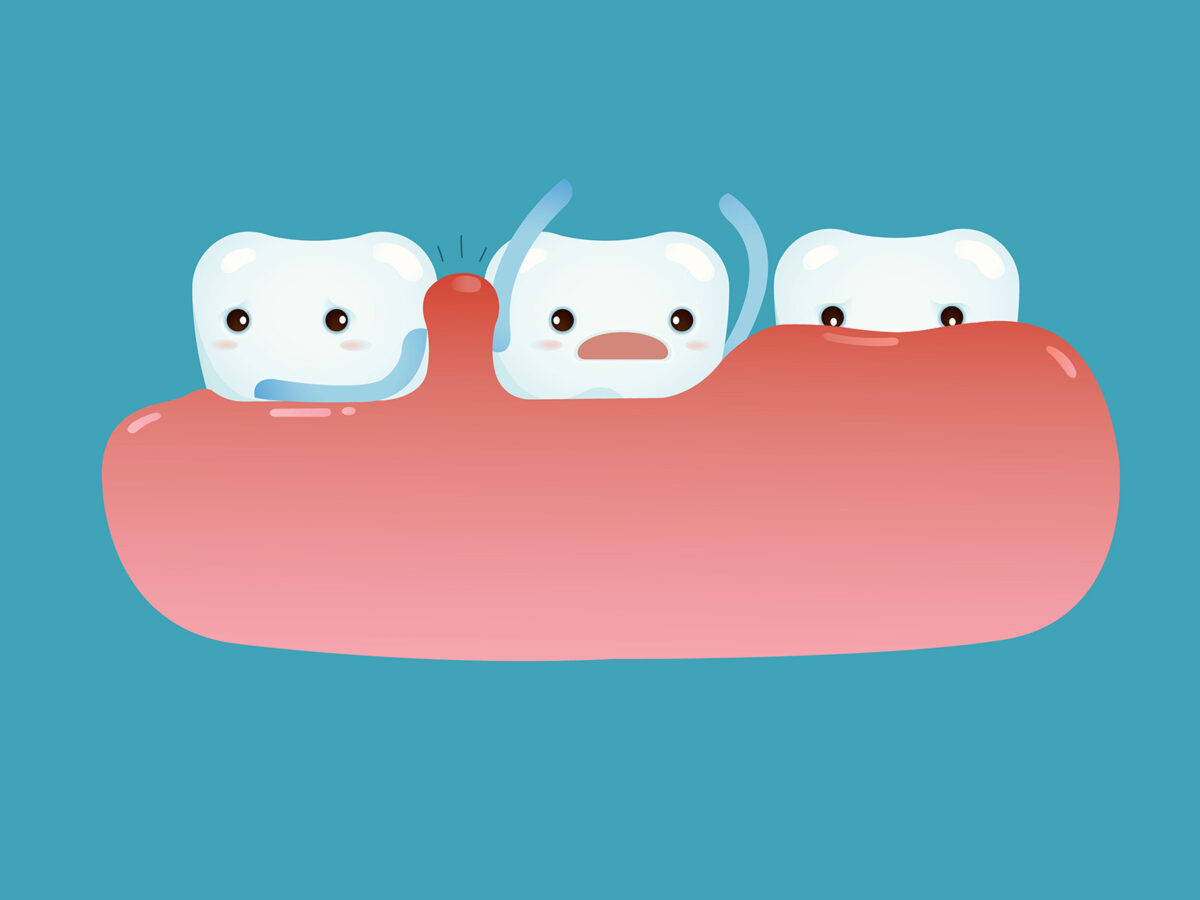Blog
Dental hygiene tips for healthy teeth & gums

How quickly does gingivitis develop?
Gum disease is listed among the most common diseases which cause inflammation of the gums. Every now and then many people suffer from swollen gums. In its early stage, gum infection does not cause much damage. But if left untreated, this gum problem would propagate to other periodontium areas and cause damage to the soft tissues and bones that hold our teeth firmly anchored in place.
Gingivitis is the first stage of periodontitis (a more severe dental issue) which can be easily prevented with good oral hygiene (brushing and flossing twice a day.) But if gingivitis is not attended to, the issue can progress down to jawbones and result in tooth loss. Hence, it is crucial to treat gingivitis in its early days. Let us look closely into gingivitis, how soon it can develop, and some ways to prevent or reverse it.
What Does Gingivitis Look Like
Gingivitis is an initial stage of gum disease where plaque has just started building up in the mouth. Gingivitis is mostly painless, so it is easy to overlook when you get it. But it is a critical stage as it is still reversible, and you can stop the downward spiral towards periodontal disease with good oral care.
- The portion of gum surrounding the bottom of our upper teeth and the lower teeth is called gingiva.
- Gingivitis is swelling or redness and soreness of these gum areas.
- Gum disease begins with the accumulation of plaque around teeth and the formation of hard plaque or tartar.
- You could occasionally experience bad breath.
- There could be bleeding when you brush or floss. They could also bleed sometimes without any obvious reasons.
How Soon Does Gingivitis Develop and Grow Into Periodontal Disease
Periodontal disease grows slowly but steadily. Plaque reaches its maximum extent in as little as four days, so you visibly see signs of gingivitis on day five of plaque formation.
- Gingivitis could develop into advanced stages of gum diseases, such as early, moderate, or advanced periodontitis, in just a few weeks (if you have done nothing to treat it.)
- You can self-diagnose gingivitis and treat it at home.
- Within five days of plaque buildup, it is easily visible, and you can also see clinical signs of gingival inflammation in localized areas.
- If you still do not brush your teeth twice a day, the plaque will harden into something called tartar, which is much more difficult to remove.
- If not treated, the localized bacteria would start spreading to your bones and gums with the help of saliva. This is the earliest stage of periodontitis.
Primary Causes of Gingivitis
- Plaque formation is the most common cause of inflamed gums. Plaque is a thin film of bacteria and other particles in the mouth and is not very visible initially.
- Plaque forms at the juncture where teeth and bone meet. The bacteria present in plaque eat sugars from the food you consume, and the waste product of this process can make gums swollen and inflamed.
- You can remove plaque by cleaning your mouth properly.
- A few other factors that increase your chances of getting gingivitis or periodontal disease are:
- Smoking
- Certain metabolic diseases such as diabetes.
- Hormonal changes during pregnancy, menstruation, menopause, puberty, etc.
- Certain medications reduce saliva flow in the mouth and make our mouths dry or make our gums bigger so that cleaning teeth properly is difficult. For instance medications for cardiovascular disease (heart and blood vessels,) medications that suppress the immune system, etc.
Other Complications of Gum Disease
If you do not treat your gum disease at its early stage, it can develop into periodontitis which leads to further complications such as:
- Painful collection of pus (gum abscesses)
- Loss of teeth
- Receding gums
- Loosening of teeth.
It is necessary to have regular dental checkups so that gum disease can be diagnosed in its early stages and treated. It takes just a few days (four to five days) for gums to swell if you do not remove plaque. With proper oral hygiene and the use of floss and interdental toothbrushes, you can remove the plaque before it spreads to deeper areas of your teeth which can affect bones and cause teeth loss.


